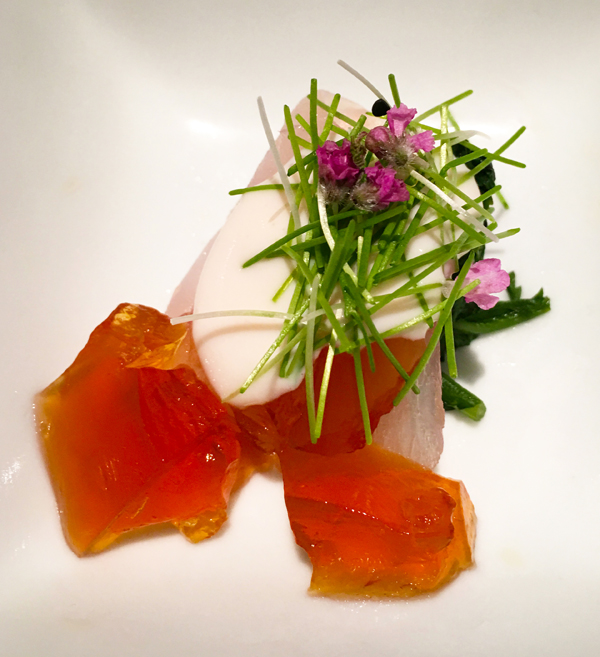
By Larry Mogelonsky, MBA, P. Eng. (www.hotelmogel.com)

How did he do this? While the movie will explain his methodology and philosophy in depth, I would not feel comfortable writing about this subject matter and its applications for hoteliers until I had experienced the magic for myself. As luck would have it, the hotel for my first-ever trip to Japan, the Four Seasons Marunouchi, was only a short walking distance from this hard-to-find food mecca.
Booked four months in advance of my Tokyo sojourn, the price for two was among the more expensive meals we’ve experienced, coming in at about $300 USD each without alcohol. There was no menu; the meal comprised 20 pre-set and handcrafted courses of extraordinary sushi. To make matters worse, no credit cards were accepted, leaving me in a somewhat compromising position until I was bailed out by our concierge.
Following my dinner, I revisited the film in order to fully come to grips with the stratospheric attention to detail that I had just experienced. My key takeaways are based upon the insightful comments made by the master chef regarding his craft. Importantly, and while I may be paraphrasing to a certain extent, this restaurant and its accompanying documentary are a treasure trove of valuable insights for hoteliers.
“To be a great chef, you need to be able to appreciate the nuance of what is the best.” In other words, it’s all in the details. For instance, Jiro knows that the temperature of a cook’s hands influences the temperature of the rice which in turn influences the flavor of the fish. Every variable counts, and all the best properties excel at making sure that all elements are presented perfectly and congruently to the guest. While many would think that you can bedazzle customers with grand gestures, it is always the seemingly perceptible nuances – whether it pertains to décor, event programming or service delivery – that will really win the hearts of guests and keep them coming back.
“There is no such thing as perfection. Everything can be made better. Keep innovating.” As the title of the documentary informs us, one of the key reasons why Jiro has achieved his status is because he literally dreams of sushi and is constantly thinking about how to hone his craft. Even as an octogenarian, he never stops observing, questioning and learning. So, do not get comfortable with what you have achieved. There is always a way to make it better, and indeed if you aren’t continuously improving then someone else is.
“Find the best suppliers and stick with them.” Jiro wakes up in the wee hours of the morning and personally goes to the Tsukiji fish market to inspect the day’s catch. It doesn’t get much fresher than that! Over the years, he’s developed a healthy relationship with many of the vendors who value his steady business as well as his craft, and are therefore able to lend their advice on which fish are best. Too often nowadays we look to save a few pennies by regularly switching vendors. Ongoing and established partnerships with suppliers will ensure that they are always looking out for your interests instead of treating you as a ‘one off’ client.
“Your job is your craft. Love it or leave it.” To be successful in hospitality means you must have an intrinsic love of service. Do you dream of hospitality? When you’re off the clock, are you still thinking about how you can make your property, management group or corporation operate better? If you really aren’t service-oriented, why are you in the hotel business?
“Start at the bottom. It takes ten years as an apprentice before you will be addressed as a cook.” This is a hard one for hoteliers, as most of your team expects to be a senior manager in far less than a decade. Patience is a virtue. Think about how mentorship can be levered to challenge eager young minds. And rather than pigeonhole managers into a particular ‘silo’, give them opportunities to experience many facets of your operations so that they can integrate teachings from different departments in order to form their own holistic worldview.
“Don’t be afraid to increase prices based upon costs.” Jiro has an established reputation and commands prices well above any other sushi restaurant. While your property might be higher-priced than your comp set, you must continually earn that value proposition by being the best and giving your guests a reason to appreciate why you are worth the extra cost.
“Personalize delivery for every diner.” Jiro adjusts portion sizes for every patron so that they can more easily consume the sushi as intended. He watches how people are eating each course and even rearranges where he places the sushi based upon if the diner is left- or right-handed. For tech-savvy hoteliers, think about how you collect CRM data and how you can improve your service delivery by applying what this vast database can tell you about guest preferences.
This article may not be reproduced without the expressed permission of the author.
Editor’s note: To discuss business challenges or speaking engagements please contact Larry directly.

